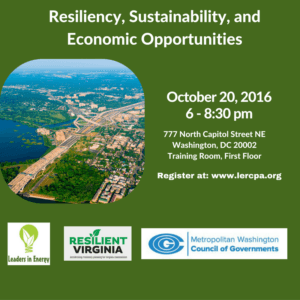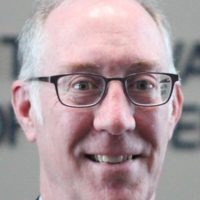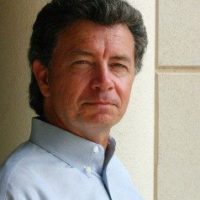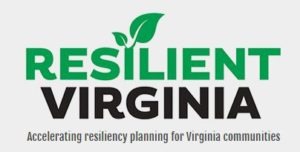Resiliency, Sustainability, and Economic Opportunities
(aka “Climate Opportunities: Resilient Cities & Food Hubs”)

Register today to secure your seat for this exclusive look at innovative approaches to environmental restoration, prosperity, and resilience-building.
Find out about how…
- Washington, DC is launching the designated “100 Resilient Cities” program which has just been awarded a Rockefeller Foundation 100 Resilient Cities grant. Find out what this will mean as the city and region move forward to become more climate resilient to the physical, social and economic challenges that are a growing part of the 21st century;
- Economic opportunities based on “restorative development” intersect with natural resource restoration, climate change adaptation, and disaster resilience. Opportunities will be highlighted for businesses, communities, and investors to create “resilient prosperity” by revitalizing the natural, built, social, and economic assets they have today, to attract the resources they’ll need tomorrow, e.g., one example includes the New York High Line project which has expanded economic development and vitality;
- Urban agriculture programs and food hubs in Washington, DC can help revitalize urban communities, provide healthier food options, and offer economic opportunities for residents; and
- MWCOG has developed the “Building a Climate Resilient National Capital Region” strategy to coordinate federal and community efforts.
This event will be conducted on Thursday, October 20th, 6-8:30 pm, by Leaders in Energy and Resilient Virginia and take place at the Metropolitan Washington Council of Governments, at 777 North Capitol Street, NE, Washington DC 20002, near the Union Station Metro on the red line.
REGISTER HERE
Early bird rates are available through Thursday, October 13, 2016. Job seekers and student rates are also available. General admission includes program, beverages, and pizza. No refunds after October 13th, 2016.

Stephen Walz
Welcoming Remarks by Stephen Walz, Director of Environmental Programs, Metropolitan Washington Council of Governments
Stephen Walz is the Director, of Environmental Programs for the Metropolitan Washington Council of Governments. He leads COG’s water, air quality, waste management, energy and climate teams serving localities across metropolitan Washington. He brings over 38 years’ experience to energy, sustainability and environmental protection program design, implementation, and evaluation. Previously, Mr. Walz was the Director of Regional Energy Planning with the Northern Virginia Regional Commission and as the Director of the Virginia Department of Mines, Minerals and Energy and Senior Energy Policy Advisor to Virginia Governor Tim Kaine. He has a BS in Civil Engineering from Worcester Polytechnic Institute in Worcester, Massachusetts.

Annette Osso
Our Moderator, Annette Osso, Managing Director, Resilient Virginia
Annette Osso, LEED AP, Managing Director, Resilient Virginia is an environmental professional with an extensive background in green building and sustainable development. With Resilient Virginia, Ms. Osso is bringing resiliency resources to communities and businesses around the state. Ms. Osso led Virginia Sustainable Building Network for 18 years and has made major contributions to raising environmental and energy awareness at the state and national level. These include working with state agencies and private sponsors to create the Virginia Sustainable Future Conference series; developing and presenting sustainable community development workshops and technical training throughout the state and mid-Atlantic; and introducing a home builder Green certification program into Virginia.
MEET OUR SPEAKERS/PANELISTS

Storm Cunningham
Storm Cunningham is publisher of Revitalization News, the global journal of news, research, and original articles related to urban/rural revitalization, environmental restoration, and economic/social resilience—and as a Regional Partnerships Planner for government agencies, mayors, governors, BIDs, CDCs, CDFIs, Chambers, universities, non-profits, and foundations—Storm helps places worldwide revitalize with the natural, built, social, and economic assets they have today, to attract the resources they’ll need tomorrow.
Storm is the author of 2002’s The Restoration Economy, which has been hailed by government and business leaders around the world as “Extraordinary”, “Remarkable”, “A modern classic”, “A landmark work”, “Required reading”, and “The most important and valuable business book I have read in many years.” His second book, reWealth, was published by McGraw-Hill in 2008. George Ochs, Director of Real Asset Investment at JP Morgan calls Storm “the world’s thought leader on community revitalization and natural resource restoration” and calls reWealth: “The secret weapon…for economic recovery at both local and global scales.” Storm’s third book, Planetary Renewal: A Strategy To Reverse Our Decline will be published in November of 2017. It shows how repurposing, renewing, and reconnecting has become the strategy for the Anthropocene Epoch. We have been adapting the world to our needs for some 12,000 years. Now, our continued health and prosperity will be based on adapting to those adaptations, and to their unintended consequences (such as climate change).
A former Green Beret SCUBA medic with the U.S. Army’s 7th Special Forces Group, he is an avid SCUBA diver, motorcyclist, and amateur herpetologist. He lives in Arlington, Virginia, USA.

Dwane Jones
Dwane Jones, Ph.D., is the Director of the Center for Sustainable Development + Resilience at the University of the District of Columbia, a division of the College of Agriculture, Urban Sustainability, and Environmental Sciences (CAUSES). Dwane conducts research and teaches courses in Urban Sustainability, Environmental Sustainability, Sustainability Entrepreneurship, Public Policy and Health, and Green Infrastructure. He has degrees in Urban Planning, Environmental Planning, and Urban Design.
Dwane will be discussing UDC’s Urban Agriculture activities and related economic opportunities in the Washington DC area. The Center for Sustainable Development is a central component of CAUSES in which all academic and land-grant initiatives coalesce. The Center implements research projects that integrate all programs of CAUSES in an effort to produce and understand the implications and impacts of sustainable development. The Center for Sustainable Development encompasses the three pillars of Sustainability- People, Places, and Profit (Equity, Environment, and Economics).
He received his Doctor of Philosophy (Ph.D.), Urban Design, from North Carolina State University.
Harrison Newton
Harrison Newton is the chief manager responsible for launching the District’s 100 Resilient Cities program and establishing a focus on resilience within the Office of the City Administrator (OCA). He leads a strategic launch team including senior representatives of the Deputy Mayor for Greater Economic Opportunity, the Deputy Mayor for Health and Human Services, the DC Homeland Security and Emergency Management Agency and the DC Departments of Energy and Environment (DOEE), Health (DOH), Planning (OP) and Housing (DCHA).
Harrison helped lead the development of the District’s successful application to the 100 Resilient Cities network and has a strong history of developing programs that work across agency boundaries to make residents more resilient. Prior to coming to OCA, he was the Associate Director of the Efficiency and Affordability Division at DOEE. There he led an effort to modernize and develop strategic priorities for programs that help thousands of DC residents control their energy costs.
He also served in DOEE as the Chief of the agency’s Lead and Healthy Housing Branch, creating the city’s award-winning “Partnership for Healthy Homes.” Earlier in his career in public service, Harrison directed a suite of environmental health programs in multiple cities along the East Coast, focusing on protecting children with disabilities and other at-risk populations. As the leader of a coalition of non-profits focused on lead poisoning, he also played a leadership role in the passage of the District’s lead poisoning prevention law and also worked on projects increasing the capacity of healthcare clinics to respond to disasters.
REGISTER HERE.
Event Location:
Metropolitan Washington Council of Governments
777 North Capitol Street NE
Washington, DC 20002
Training Room, First Floor
Time: 6:00-8:30 pm
 (Near Union Metro Station on the Red Line)
(Near Union Metro Station on the Red Line)



